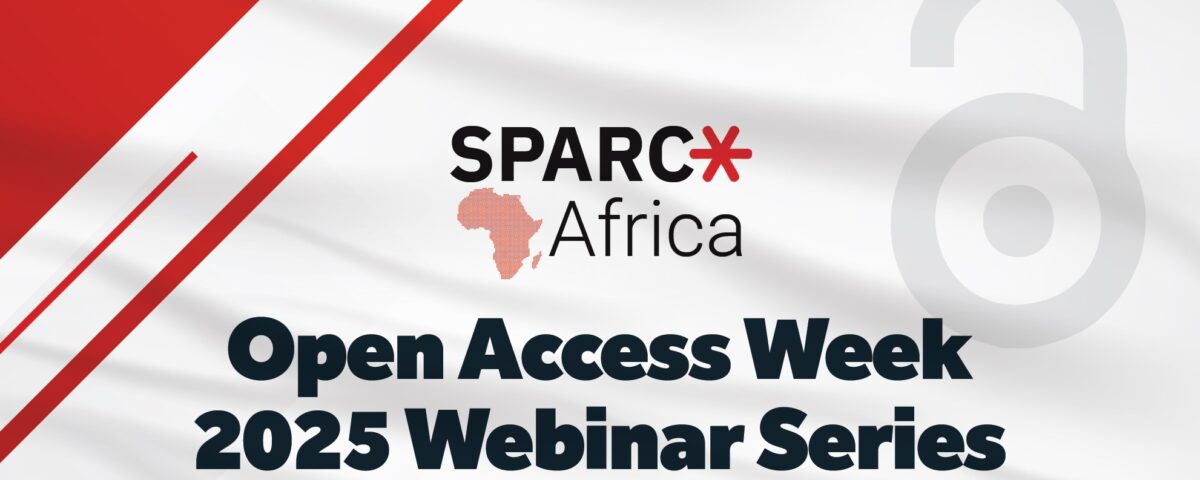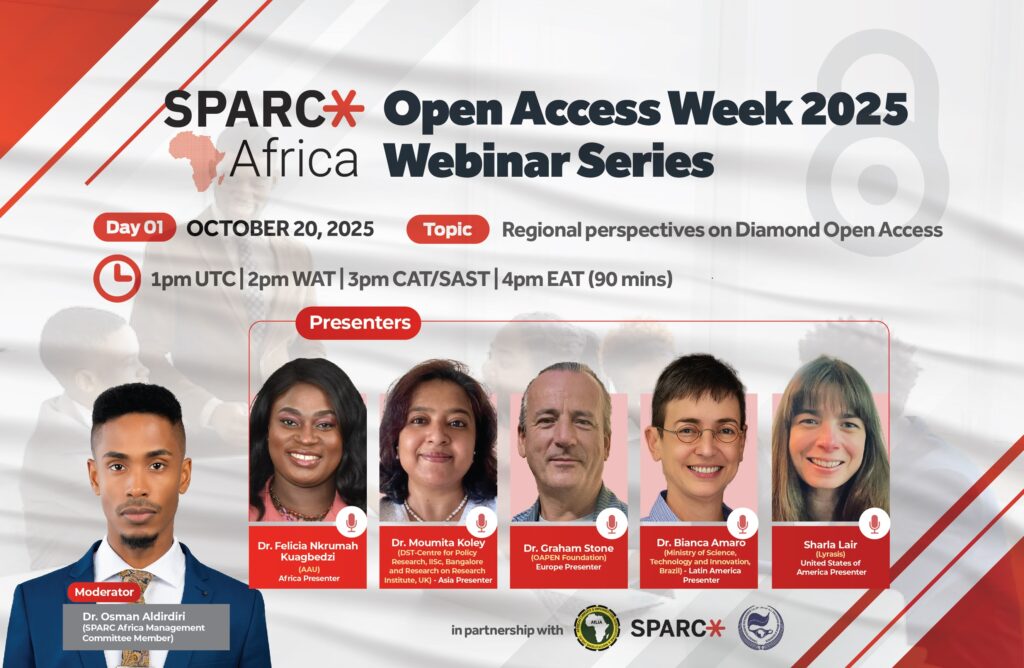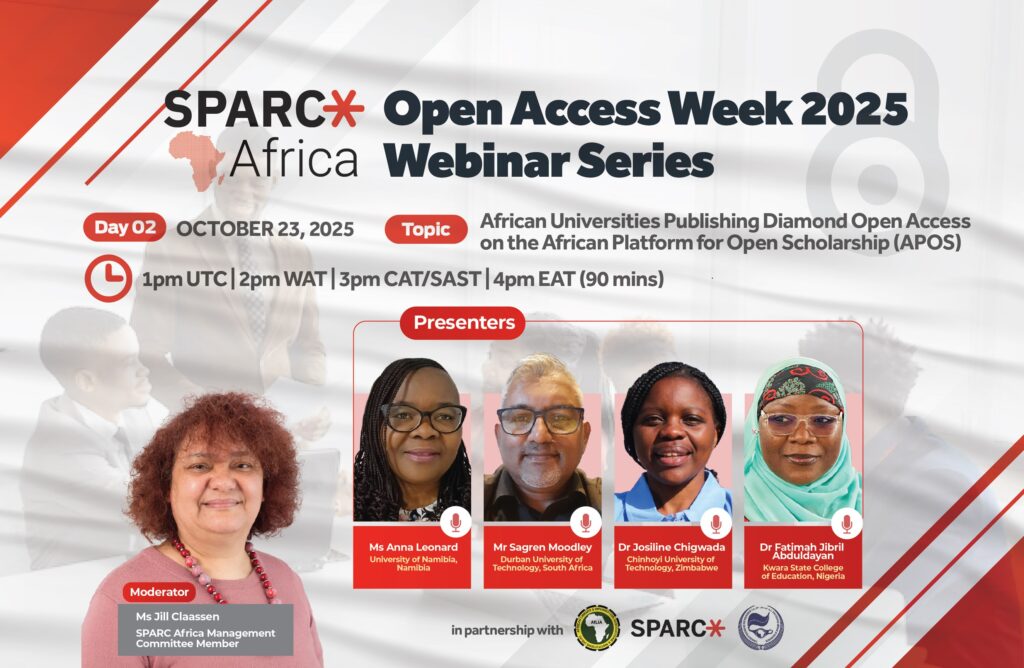SPARC Africa Open Access Week 2025 Webinar Series

SPARC Africa, the African affiliate of the Scholarly Publishing and Academic Resources Coalition (SPARC), in collaboration with the African Library and Information Associations and Institutions (AfLIA), and the Association of African Universities (AAU), warmly invites librarians, researchers, educators, students, publishers, and all who care about the future of knowledge to join us for a two-day webinar series to mark this year’s International Open Access Week.
The 2025 global theme, “Who Owns Our Knowledge?”, challenges us to reflect on equity, ownership, and justice in the production and sharing of knowledge. Together, we will explore how Diamond Open Access (DOA) can advance knowledge as a public good, especially across Africa and the Global South.
Registration is free, and one registration gives you access to both sessions.
Day 1 Focus – Monday, October 20, 2025
Topic: Regional perspectives on Diamond Open Access
This first webinar will focus on Diamond Open Access (DOA) from global and regional perspectives. Speakers representing Africa, Asia, USA, Europe, Latin America and Middle East and North Africa (MENA) will share insights on how DOA is implemented.
The discussion will be guided by the Toluca–Cape Town Declaration on Diamond Open Access, which reaffirms knowledge as a human right and a public good.
| The Toluca–Cape Town Declaration on Diamond Open Access Following the 2023 Toluca Global Summit, we, the 2024 Cape Town Global Summit participants, affirm that sharing knowledge is a human right. As such, scholarly knowledge must be a public good. It must be accessible to all communities, including readers and authors, without barriers and paywalls. Participation in knowledge production and communication must be free of prejudice and bias. In line with the 2021 UNESCO Recommendation on Open Science, Diamond Open Access is community-owned, community-led, and non-commercial. Social justice, equity, and inclusivity are fundamental to Diamond Open Access, enabling it to be a driver of decolonisation and demarginalisation. We commit to regional and language diversity in scholarly communication. The implementation of Diamond Open Access needs to be tailored to address both local and global challenges and supported by systems of research assessment. Source: https://doasummit.uct.ac.za/ |

Day 2 Focus – Thursday, October 23, 2025
Topic: African Universities Publishing Diamond Open Access on the African Platform for Open Scholarship (APOS)
The second webinar turns to Africa, with a spotlight on the African Platform for Open Scholarship (APOS). Speakers from universities already publishing through APOS will share their experiences, challenges, and benefits. This will be a practical session, showing how DOA is being implemented on the continent and how APOS is strengthening scholarly publishing in African universities.

Who Should Attend?
- Librarians and library leaders
- Researchers and academics across all disciplines
- Students at undergraduate and postgraduate levels
- Scholarly publishers and editors
- University administrators and policymakers
- Anyone interested in open science, open access, and equitable knowledge sharing
Registration Information
- Registration is free and gives you access to both sessions.
- Only one registration is required.
- Registered participants will receive reminders one week, one day, and one hour before each webinar.
- Time: 1:00 pm UTC | 2:00 pm WAT | 3:00 pm CAT/SAST | 4:00 pm EAT (each day)
- Duration: 90 mins
Technical Requirements
- The webinars will be hosted on Zoom.
- Participants who do not already have Zoom should download, install, and create an account ahead of time (Click here to download Zoom).
- Please log in at least 10 minutes early to test your connection.
- Audio and video will stream through computer speakers. For the best experience, we recommend using a headset or earpiece.
Webinar resources
- A list of additional resources will be provided at the end of each webinar.
- Registrants may receive presentation slides.
- Webinar recordings will be uploaded to the AfLIA YouTube Channel after each session for wider access.
- Please note: No certificates of participation will be issued for this series.
Enquiries
For further questions or assistance, please contact:
- Stanley Boakye-Achampong – researchcoordinator@aflia.net
- Jill Claassen– jill.claassen@uct.ac.za
